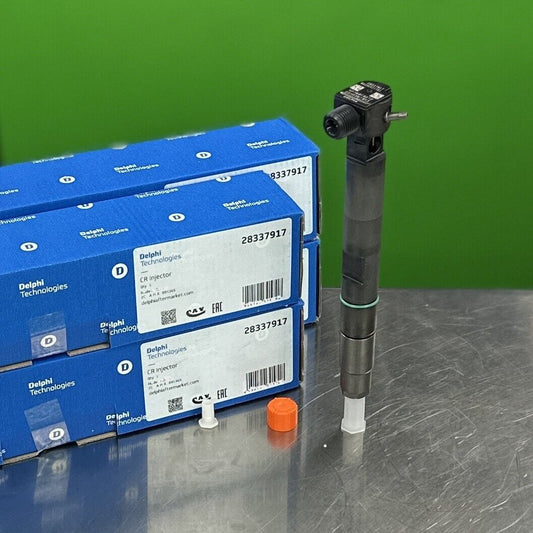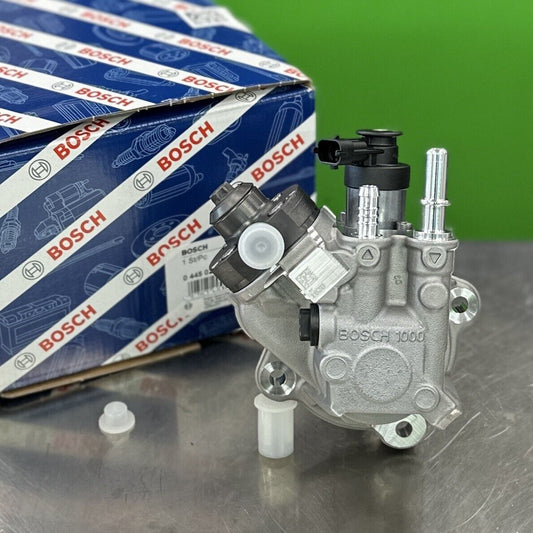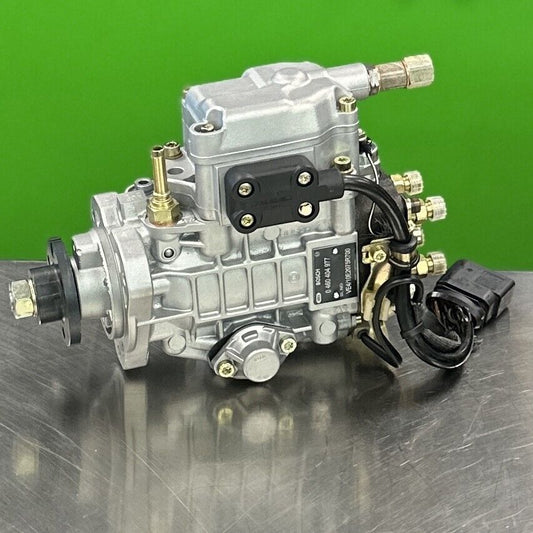The Science Behind Fuel Injector Technology
Exploring the intricate mechanisms and processes involved in fuel injector technology reveals a fascinating world of precision and efficiency. Fuel injectors play a crucial role in the functioning of modern engines, acting as the gatekeepers of fuel delivery into the combustion chamber. These sophisticated components are designed to deliver precise amounts of fuel at the right moment, ensuring optimal engine performance.
Imagine fuel injectors as the conductors of a symphony, orchestrating the perfect blend of fuel and air for combustion. Their design principles are rooted in efficiency, aiming to atomize fuel into tiny droplets for thorough burning. This meticulous process not only enhances engine power but also contributes to fuel efficiency, making engines run cleaner and smoother.
When delving into the realm of fuel injection systems, one encounters a diverse landscape of technologies. Direct injection and port fuel injection stand out as prominent players, each with its own set of mechanisms, benefits, and drawbacks in automotive applications. Direct injection, for instance, offers improved fuel efficiency and power output by injecting fuel directly into the combustion chamber, while port fuel injection ensures consistent fuel delivery and reliability.
Various factors influence the performance of fuel injectors, shaping their efficiency and longevity. The quality of fuel, cleanliness of injectors, and proper pressure regulation are all critical aspects that can impact injector performance. Regular maintenance is key to ensuring that fuel injectors operate at their peak, delivering optimal fuel flow and combustion for sustained engine efficiency.
Looking towards the horizon of automotive technology, future innovations in fuel injector technology promise exciting advancements. Electronic fuel injection systems are paving the way for precise control over fuel delivery, optimizing engine performance and emissions. Variable injection timing is another frontier, offering dynamic adjustments to fuel delivery based on driving conditions, further enhancing efficiency.
As the automotive industry marches towards sustainability, eco-friendly fuel delivery systems are on the rise, aiming to reduce emissions and environmental impact. These innovations in fuel injector technology not only revolutionize engine performance but also pave the way for a greener future on the roads.
Function of Fuel Injectors
The function of fuel injectors in a vehicle's engine is crucial to its performance and efficiency. Fuel injectors are responsible for delivering the precise amount of fuel into the combustion chamber at the right moment. This process ensures that the fuel is atomized into tiny droplets, allowing for efficient burning and maximum power generation. Think of fuel injectors as the precision surgeons of the engine, carefully administering the fuel dosage needed for optimal combustion.
Imagine each fuel injector as a tiny, high-tech sprinkler system that sprays fuel into the engine with pinpoint accuracy. By controlling the fuel delivery with such precision, fuel injectors contribute to better fuel efficiency and reduced emissions. This method of delivering fuel directly into the combustion chamber allows for a more controlled and efficient burning process compared to older carburetor systems.
Furthermore, fuel injectors play a significant role in maintaining the engine's performance under various driving conditions. Whether you are idling in traffic or accelerating on the highway, fuel injectors adjust the fuel delivery to meet the engine's demands. This dynamic response ensures smooth operation and optimal power output, regardless of the driving situation.
Modern fuel injection systems have evolved to incorporate advanced technologies that enhance their performance. From multi-hole injectors for improved fuel atomization to electronic control units that precisely regulate fuel delivery, the function of fuel injectors has become more sophisticated than ever before. These advancements not only boost engine efficiency but also contribute to a cleaner and more environmentally friendly driving experience.
Types of Fuel Injection Systems
When it comes to fuel injection systems, there are two primary types that dominate the automotive industry: direct injection and port fuel injection. Let's delve into the differences between these systems to understand their mechanisms, benefits, and drawbacks.
Direct Injection: Direct injection systems deliver fuel directly into the combustion chamber of the engine. This method allows for more precise control over the fuel-air mixture, resulting in improved fuel efficiency and power output. By injecting fuel directly at high pressure, direct injection systems can achieve better combustion efficiency and reduce emissions.
Port Fuel Injection: In contrast, port fuel injection systems inject fuel into the intake port just before the intake valve. While this method is simpler and less expensive than direct injection, it may not provide the same level of efficiency and performance. Port fuel injection systems are known for their reliability and ease of maintenance.
Comparing the two systems, direct injection offers superior performance and efficiency due to its precise fuel delivery and combustion control. On the other hand, port fuel injection systems are more cost-effective and easier to maintain. Automotive manufacturers often choose between these systems based on the desired balance between performance, cost, and complexity.
In addition to direct injection and port fuel injection, there are variations and combinations of these systems used in modern engines to optimize fuel delivery and engine performance. Understanding the differences between these fuel injection systems is crucial for both automotive enthusiasts and professionals in the industry.
Factors Affecting Fuel Injector Performance
Factors affecting fuel injector performance play a crucial role in the efficient functioning of an engine. One key factor is the quality of the fuel being used. Contaminated or low-quality fuel can lead to clogging of the injectors, affecting their spray pattern and overall performance. Regularly using high-quality fuel and additives can help maintain injector cleanliness and prevent issues.
Another important aspect is pressure regulation within the fuel injection system. Proper pressure ensures that the fuel is delivered in the right amount and at the correct rate, optimizing combustion and engine performance. Malfunctioning pressure regulators can lead to fuel delivery inconsistencies and impact the overall efficiency of the engine.
Maintaining injector cleanliness is essential for optimal performance. Over time, deposits can build up on the injectors, affecting their ability to atomize fuel effectively. Routine cleaning and inspection of the injectors can help prevent build-up and ensure smooth operation. Additionally, using fuel injector cleaners can aid in removing deposits and improving performance.
Furthermore, the overall condition of the engine can influence fuel injector performance. Issues such as air leaks, faulty sensors, or worn-out components can disrupt the fuel-air mixture ratio, affecting combustion efficiency. Regular engine maintenance and diagnostics can help identify and address any underlying issues that may impact injector performance.
Proper maintenance practices are essential for ensuring the longevity and efficiency of fuel injectors. Regularly servicing the fuel injection system, replacing filters, and following manufacturer recommendations for maintenance intervals are vital steps in preserving injector performance. Neglecting maintenance can lead to decreased fuel efficiency, engine misfires, and potential damage to the injectors.
Future Innovations in Fuel Injector Technology
The future of fuel injector technology holds exciting possibilities for the automotive industry, with innovations that promise to revolutionize engine performance and efficiency. One of the key advancements on the horizon is electronic fuel injection, which offers more precise control over the fuel delivery process. By utilizing electronic sensors and actuators, electronic fuel injection systems can adjust fuel flow rates in real-time, optimizing combustion for maximum power output and fuel economy.
Another emerging trend in fuel injector technology is variable injection timing, which allows for greater flexibility in fuel delivery based on engine conditions. By adjusting the timing of fuel injection events, engines can achieve improved performance across a wider range of operating conditions, from idling to full throttle acceleration. This dynamic approach to fuel injection ensures that engines operate at peak efficiency at all times.
Furthermore, the industry is also exploring eco-friendly fuel delivery systems that aim to reduce emissions and promote sustainability. Alternative fuel sources such as biofuels, hydrogen, and electric power are being integrated into fuel injector technology to create cleaner and greener automotive solutions. These eco-friendly fuel delivery systems not only help reduce the environmental impact of vehicles but also pave the way for a more sustainable future in transportation.
As fuel injector technology continues to evolve, the focus remains on enhancing engine performance, increasing fuel efficiency, and reducing emissions. By embracing these future innovations, automotive manufacturers can meet the growing demand for cleaner and more efficient vehicles while pushing the boundaries of what is possible in the realm of fuel injection systems.
Frequently Asked Questions
-
What is the role of fuel injectors in an engine?
Fuel injectors play a crucial role in delivering precise amounts of fuel into the combustion chamber of an engine. They atomize the fuel for efficient burning, contributing to optimal engine performance and fuel efficiency.
-
What are the types of fuel injection systems?
There are various types of fuel injection systems, including direct injection and port fuel injection. These systems differ in their mechanisms, benefits, and drawbacks in automotive applications.
-
How do factors like fuel quality and maintenance affect fuel injector performance?
Factors such as fuel quality, injector cleanliness, pressure regulation, and regular maintenance all influence the performance of fuel injectors. Maintaining these aspects is crucial for the longevity and efficiency of fuel injectors.
-
What are some future innovations in fuel injector technology?
Emerging trends in fuel injector technology include electronic fuel injection, variable injection timing, and eco-friendly fuel delivery systems. These innovations aim to provide sustainable automotive solutions for the future.



